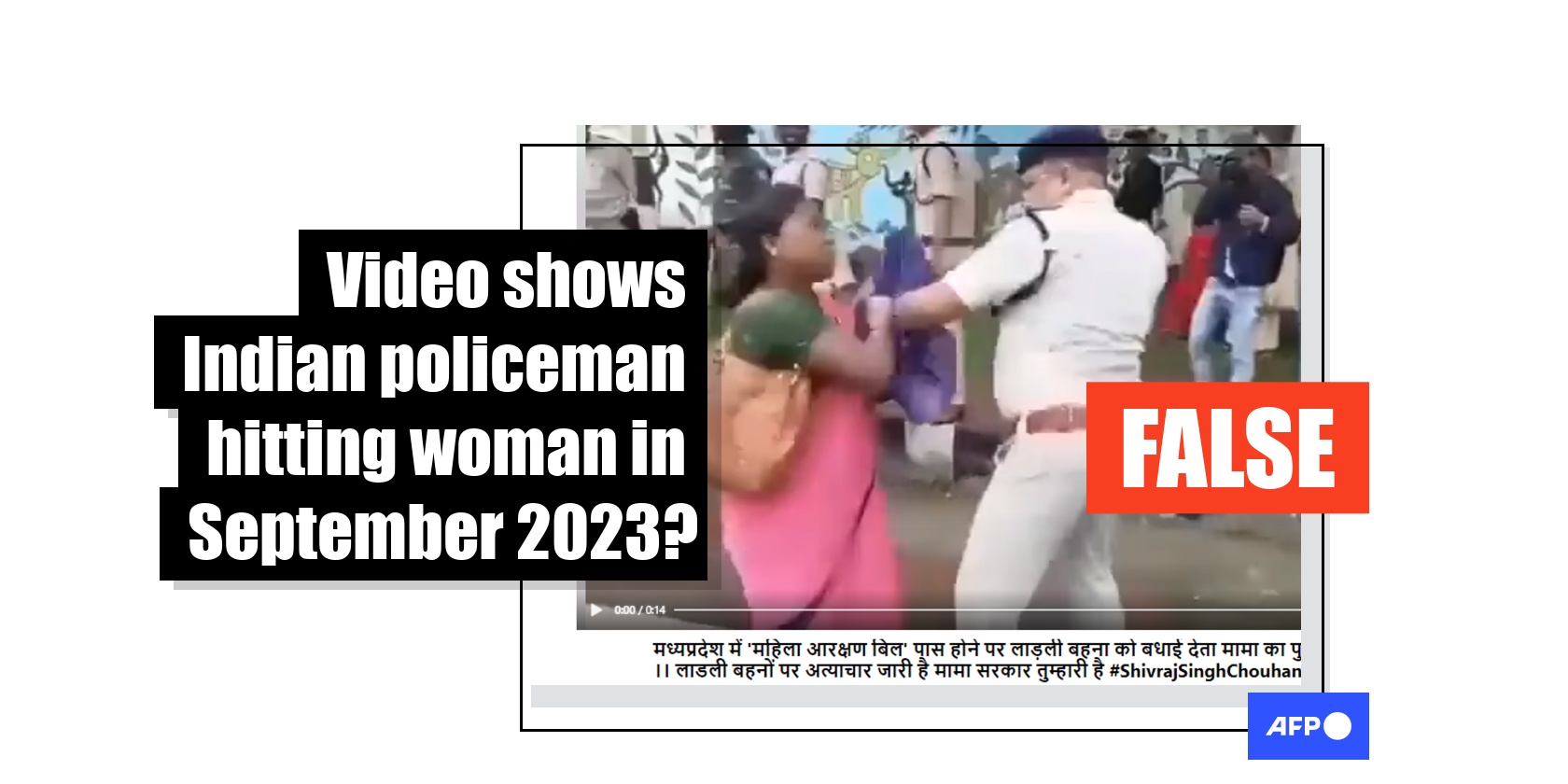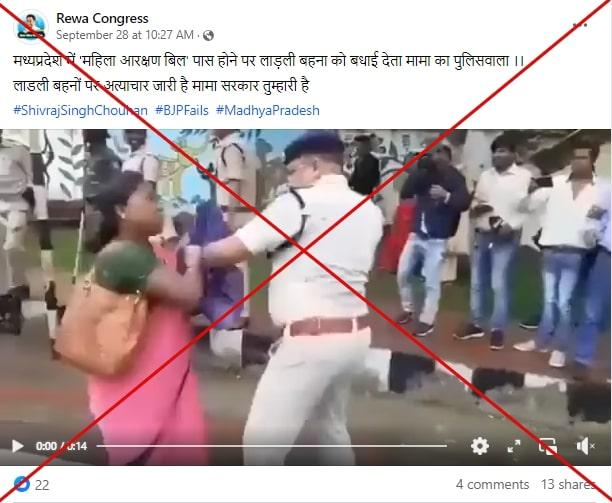
Video shows Indian policeman hitting woman protester in 2019, not in 2023
- This article is more than two years old.
- Published on October 10, 2023 at 13:24
- 3 min read
- By Devesh MISHRA, AFP India
Warning: violent footage
The video, which shows a policeman hitting a woman with a stick, was shared on Facebook on September 28, 2023, where it has been viewed more than 600 times.
In the 15-second video, a group of women, all dressed in similar pink saris, can be seen being held back by other policemen.
The post's Hindi-language caption reads, "Shivraj Singh Chouhan's police congratulated beloved sisters on the passing of 'Women's Reservation Bill' in Madhya Pradesh. Atrocities on sisters continue, in Chouhan's government."

The post was uploaded days after the Women's Reservation Bill -- which would reserve a third of seats in India's national and state legislatures for women -- was passed by the lower house of the parliament on September 20, 2023, and the upper house the following day.
The measure has been hailed as an important step toward gender equality in the South Asian country, where women are underrepresented in public life.
Shivraj Singh Chouhan, the chief minister of India's Madhya Pradesh state, is a politican from the country's ruling Bharatiya Janata Party, which sponsored the bill (archived link).
Chouhan is set to contest in Madhya Pradesh's state elections, which are scheduled to be held by the end of 2023 (archived link).
The video also circulated in similar posts on Facebook here and here -- where it garnered more than 1,100 views -- as well as on X, formerly known as Twitter, here.
However, the claim is false. The video actually shows an incident in India's eastern state of Jharkhand in September 2019, years before the Women's Reservation Bill was passed by parliament.
2019 video
A combination of reverse image and keyword searches on Google found a longer version of the video was published in a report by Indian news outlet The Quint on September 25, 2019 (archived link).
The report is titled, "Women Anganwadi Workers Beaten Up by Policemen in Jharkhand."
Anganwadi refers to India's rural child care centres, run by modestly paid workers (archived link).
According to The Quint's report, several protesting workers, who belong to the union Anganwadi Sevika Sahayaka Sangh, were brutally beaten up by policemen in Ranchi, the capital city of Jharkhand, on September 24, 2019 (archived link).
The workers were rallying to make various demands, including social security benefits and an increase in retirement age.
Below is a screenshot comparison of the video in the false post (left) and the original video from The Quint (right):

The video of the beating was also published on a workers' media outlet on September 25, 2019 (archived link).
Images from the protest, which correspond to footage of the protest, were published by local news sites here and here (archived links here and here).
AFP also geolocated the street where the incident took place. The wall murals seen in the video match with those on the Google Street View imagery of a street in Ranchi (archived link).
Below is a screenshot comparison of the video in the false post (left) and the Google Street View imagery (right), with corresponding features highlighted by AFP:


Copyright © AFP 2017-2026. Any commercial use of this content requires a subscription. Click here to find out more.
Is there content that you would like AFP to fact-check? Get in touch.
Contact us
